College of SBS Honors Emeritus Faculty for Distinguished Service and Contributions
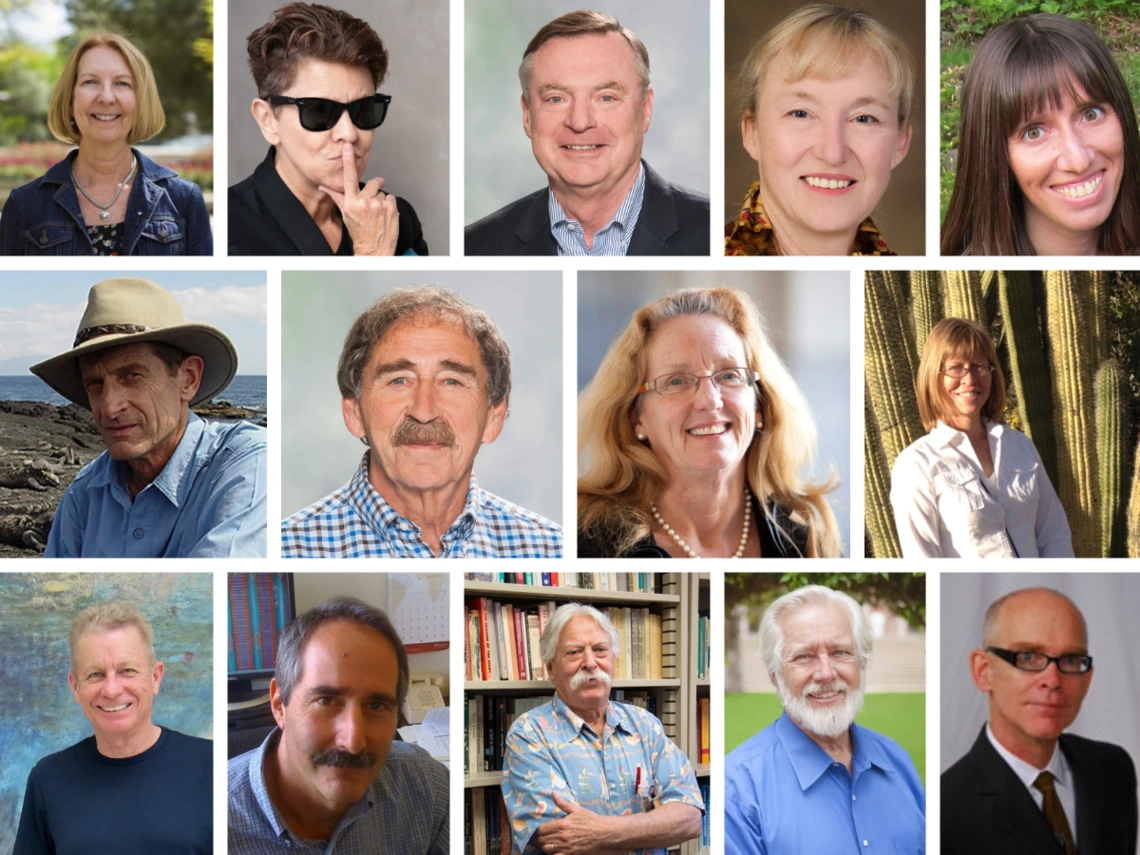
The College of Social and Behavioral Sciences is proud to recognize and celebrate its emeritus professors who retired during the past academic year. Their scholarship, mentorship, and service have left a lasting mark on the College of SBS, enriching both the depth of our research and the quality of our students’ experiences. We are deeply grateful for their years of dedication and the many ways they have helped shape the College into the thriving academic community it is today.
William Beezley
Professor Emeritus, Department of History
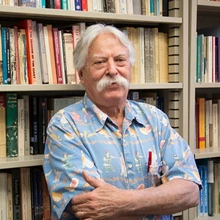
Bill Beezley is an internationally renowned historian of modern Mexico whose scholarship and mentorship have shaped the field of Latin American history for decades. Since joining the University of Arizona in 1998, he has played a central role in establishing the department’s top ten national ranking in Latin American history.
He is the author or editor of more than 25 books, including Judas at the Jockey Club and Mexican National Identity: Memories, Innuendos, and Popular Culture, as well as landmark anthologies like A Handbook of Mexican History and Culture and the Oxford History of Mexico. His work has been translated into Spanish and Mandarin.
In recognition of his contributions, the Mexican government awarded him the Ohtli Medal in 2017, the highest honor it grants to noncitizens.
“His impact extends beyond scholarship: Dr. Beezley has mentored more than 45 Ph.D. students, many of whom now teach around the world. His distinguished service, scholarship, graduate mentoring, leadership, and service have been central in the Department’s excellence in Latin American History, contributing to its top ten ranking in that field.”
—Katherine Morrissey, professor and head, Department of History
Julia Clancy-Smith
Regents Professor Emerita, Middle Eastern and North African Studies in the School of Global Studies
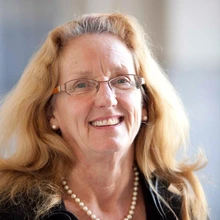
Julia Clancy-Smith is recognized as one of the foremost historians of North Africa, the Middle East, and the Mediterranean world. A Regents Professor since 2015, she was honored with the SBS Dean’s Academic Excellence Award in 2018.
Her groundbreaking book Rebel and Saint: Muslim Notables, Populist Protest, Colonial Encounters (Algeria and Tunisia, 1800–1940) became a foundational work in the historiography of the Maghrib and earned three major book awards. Mediterraneans: North Africa and Europe in an Age of Migration, c. 1800–1900 (2011) also received three awards and played a key role in bridging the historiographical divide between European, North African, and Islamic histories. Her co-authored History in Documents (2013) has since become a widely used sourcebook in the field.
Clancy-Smith's scholarship has been supported by prestigious fellowships, including from the Guggenheim Foundation, Woodrow Wilson Center, and Institute for Advanced Study at Princeton. She is also a dedicated mentor and teacher, recognized with numerous awards for teaching and graduate advising.
“Beyond this stellar scholarly, pedagogical, and professional legacy, Dr. Clancy-Smith has always demonstrated compassion and kindness to her students and colleagues.”
—Benjamin Fortna, professor and director, Middle Eastern and North African Studies
Steven Johnstone
Professor Emeritus, Department of History
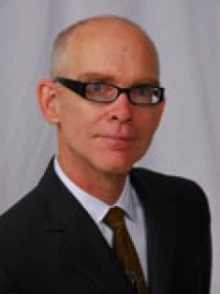
Steven Johnstone joined the University of Arizona in 1998 and has been a full professor since 2012. Trained at the University of Chicago, he is a historian of the ancient mediterranean with a focus on Greece. His work reimagines how ancient systems of understanding and communication were formed and used.
His first book, Disputes and Democracy, explored litigation in classical Athens and how legal discourse shaped identity and social networks. His second monograph, A History of Trust in Ancient Greece—supported by a Guggenheim Fellowship—investigated how market interactions used impersonal systems of value to forge human connection, enhancing his international and interdisciplinary reputation.
At U of A, Johnstone helped found the Confluencenter and served on nearly every departmental committee. He actively opened the academy to broader audiences through programs like Strategies for Success and the Warrior Project.
“A remarkable scholar, a legendary teacher, and a man of civility, courtesy, and humor, Steve Johnstone has left his mark on his field (ancient Greece), on the Department, on the University, and on generations of students.”
—Katherine Morrissey, professor and head, Department of History
Steve Kuhn
Fred A. Riecker Distinguished Professor Emeritus, School of Anthropology
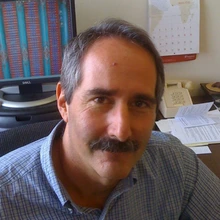
Steve Kuhn is an archaeologist whose work centers on the understanding of the evolution of human technology and social behavior. Since joining the University of Arizona faculty in 1994, Kuhn has advanced the field of Paleolithic archaeology through a broad body of research, mentorship, and international collaboration.
Focusing primarily on stone artifacts as a lens into early human life, Kuhn has conducted archaeological fieldwork and laboratory research in Serbia, Morocco, China, and the Levant. His cross-regional work has illuminated the ecological and social dynamics that shaped early technological systems, including the origins of ornaments and communication.
Kuhn has held prestigious international appointments, including as a visiting professor at the Institute for Vertebrate Paleontology and Paleoanthropology in Beijing, and as a research scholar in Cologne, Germany, supported by a research award from the Alexander von Humboldt Stiftung. In 2017, he received the Society for American Archaeology’s Award for Excellence in Archaeological Analysis (Lithics).
His book, The Evolution of Paleolithic Technologies (2020), provides a novel perspective on long-term trajectories of evolutionary change in Paleolithic tools and toolmakers, reflecting decades of scholarship and global field experience.
"Dr. Kuhn is an international leader in the study of the evolution of human technological and social behavior and a recognized specialist in the analysis of stone artifacts."
—Diane Austin, professor and former director, School of Anthropology
Barbara Mills
Professor Emerita, School of Anthropology
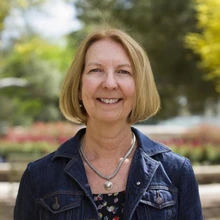
Barbara Mills has been a member of the University of Arizona faculty since 1991. As department head, she led the establishment of the School of Anthropology and has served on numerous committees across the department, college, and university. She was named a Regents Professor in 2018.
A leading archaeologist of the ancient American Southwest, Mills has received major recognition for her scholarship, including the Society for American Archaeology’s Presidential Recognition Award (2017) and Award for Excellence in Archaeological Analysis – Ceramics (2015). She was a Cotsen Archaeology Fellow at the School for Advanced Research in 2014 and won the Gordon R. Willey Prize from the American Anthropological Association in 2004.
Mills’ research has been supported by six major National Science Foundation grants, advancing the application of social network theory in archaeology and developing critical cyberinfrastructure for interdisciplinary research. She has also led or co-led the National Park Service’s Linking Southwest Heritage Through Archaeology program for 10 years.
“Barbara Mills is a leader in archaeological method and theory, especially as applied to the North American Southwest, here at the University of Arizona and across the globe.”
—Diane Austin, professor and former director, School of Anthropology
H. Brinton (Brint) Milward
Professor Emeritus, School of Government and Public Policy

Brint Milward retired after 36 years at the University of Arizona. A nationally recognized scholar in public administration and network theory, Milward was the first director of the School of Government and Public Policy and held the Melody S. Robidoux Foundation Leadership Chair.
Milward’s research on “dark networks” led to his participation in over $10 million in federal funding and those articles have been cited for their application of network analysis to terrorist networks, human trafficking, and drug smuggling. He is a Fellow of the National Academy of Public Administration and received a Lifetime Achievement Award from the Public Management Research Association.
“It is no exaggeration to credit Brint with helping make the SGPP the dynamic, diverse, and successful school that it is today.”
— Alex Braithwaite, professor and director, School of Government & Public Policy
Emma Perez
Research Social Scientist Emerita, Southwest Center in the School of Global Studies

Emma Pérez has made transformative contributions to Chicanx history, decolonial theory, feminist thought, and queer studies. A groundbreaking historian and novelist, Pérez is best known for her book, The Decolonial Imaginary: Writing Chicanas into History (1999), which has been cited over 900 times and remains foundational in feminist and decolonial scholarship.
Since joining the University of Arizona in 2017, Pérez has mentored students across disciplines and developed courses like “Writing Queer Autohistoria,” combining historical research with creative and decolonial methodologies. Her novels, including Gulf Dreams and Forgetting the Alamo, Or, Blood Memory, have won international recognition and contributed to the literary landscape of Chicanx and queer fiction.
Her impact is global and lasting. In 2020, she was inducted into the Texas Institute of Letters, and in 2023 she delivered UCLA’s doctoral hooding ceremony keynote. She has published widely, served as associate editor of the Journal of Southwest Studies, and her work continues to appear in leading collections and classrooms.
“Dr. Pérez’s contributions have enriched the University of Arizona, reshaped academic discourse, and paved the way for future scholars. She leaves behind a body of work that will continue to influence generations to come.”
—Jeffrey Banister, former director, Southwest Center
Ivy Pike
Professor Emerita, School of Anthropology
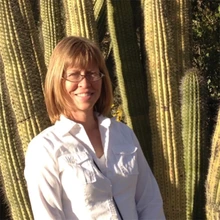
Ivy Pike is a biological anthropologist, recognized for her contributions to teaching, university service, and research on women’s reproductive and psychosocial health. Her work has focused in particular on the effects of low-intensity violence and poverty on the health and well-being of Turkana pastoralists in northern Kenya.
Since joining the University of Arizona faculty in 2004, Pike has demonstrated exceptional dedication to students, colleagues, and the broader field. Her commitment to teaching was recognized with the University of Arizona Foundation’s Leicester and Kathryn Sherrill Creative Teaching Award in 2017.
She has served on numerous committees at the department, college, and university levels, while also contributing to professional organizations and non-governmental organizations.
Pike has received multiple research grants, including two major awards from the National Science Foundation in collaboration with a longtime research partner. In addition to her scholarly achievements, she has been a committed mentor to graduate students and junior colleagues, both at the U of A and at other institutions. She has played an important role in helping her students secure competitive funding, including successful NSF research proposals.
"Dr. Pike, a biological anthropologist, is known for her incredible teaching and service as well as for her work on women's reproductive and psychosocial health and the impacts of low-intensity violence on Turkana Pastoralists of Kenya."
—Diane Austin, professor and former director, School of Anthropology
Jennifer Roth-Gordon
Associate Professor Emerita, School of Anthropology
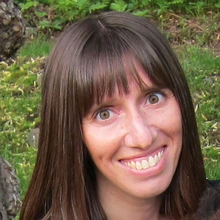
Jennifer Roth-Gordon is a linguistic anthropologist known for her work on embedded structural racism and white privilege. Since joining the University of Arizona in 2004, she has been an integral part of the School of Anthropology and broader campus community.
Roth-Gordon has excelled in her scholarship and teaching—including playing a significant role in the University of Arizona development and implementation of Collaborative Learning Spaces. Her research has been supported by the National Science Foundation, Wenner-Gren Foundation, and the Ruth Landes Memorial Research Fund.
During her extensive graduate student advising and departmental service at U of A, Roth-Gordon has guided her doctoral students in the successful completion of dissertation proposals for prestigious Wenner-Gren and Fulbright research grants and awards. She also provided service to professional organizations, local schools, and the Jewish History Museum & Holocaust History Center.
“Dr. Roth-Gordon’s research, teaching, and mentorship have left a lasting impact on our department and the communities she’s served—both academic and local.”
—Diane Austin, professor and former director, School of Anthropology
Mary Stiner
Regents Professor Emerita, School of Anthropology
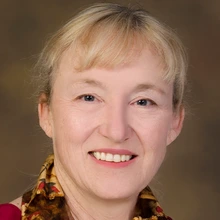
Mary Stiner is an archaeologist recognized for her work on co-evolutionary processes involving Paleolithic humans, the forager-farmer transition, zooarchaeology, and animal domestication. She was recently elected a Fellow of the National Academy of Sciences.
Stiner joined the University of Arizona faculty in 1994 and was named a Regents Professor in 2014. Her career includes multiple honors, including the 2021 Fryxell Award for Interdisciplinary Studies (Zoology) from the Society for American Archaeology and the Society’s Book Award in 1996. Her work was also recognized in 2021 by the Journal of Archaeological Science as among the most cited in the journal’s history.
She has been a lead collaborator on several long-term international projects, including the Bizmoune Cave excavation in Morocco (since 2018) and the Aşıklı Höyük project in Central Anatolia, Turkey (since 2008). She has served as a principal investigator or co-principal investigator on six major National Science Foundation grants addressing domestication, Paleolithic diet, and geochemical methods in archaeology. Stiner has actively supported graduate students and pre- and postdoctoral researchers at the University of Arizona and other institutions across the U.S., Australia, Germany, France, China, the U.K., Spain, and Turkey.
"Mary Stiner has advanced the understanding of co-evolutionary processes involving Paleolithic humans, the forager-farmer transition, zooarchaeology, and animal domestication, both at home in Arizona and abroad."
—Diane Austin, professor and former director, School of Anthropology
Mark Timmons
Professor Emeritus, Department of Philosophy
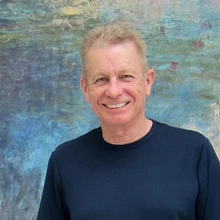
Mark Timmons has been a member of the Department of Philosophy since 2004. He specializes in Kant’s ethics, metaethics, and normative moral theory. Over his more than 20 years at the University of Arizona, he has played a pivotal role in maintaining the university’s strong reputation in the field of ethical philosophy.
Timmons has contributed to over 70 articles and book chapters, participated in numerous edited collections, and authored four books, including Kant’s Doctrine of Virtue: A Guide. He has made significant contributions to undergraduate and graduate education through his teaching, advising, and mentorship.
“Mark Timmons’ scholarly work on Kant and moral philosophy continues to influence debates in the United States and the United Kingdom, establishing him as a leading figure in the field and the principal standard bearer for ethics in Arizona.”
—Thomas Christiano, professor and head, Department of Philosophy
Ronald Trosper
Professor Emeritus, Department of American Indian Studies
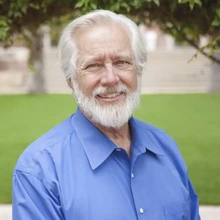
Ronald Trosper is a Harvard-trained economist and interdisciplinary scholar whose work has focused on Indigenous economics, Indigenous forestry, and American Indian Studies. His career began with the American Indian Policy Review Commission and includes decades of work in and outside academia. He joined the University of Arizona in 2011 and served as head of American Indian Studies, leading its transition from a graduate program to a full department and helping establish the AIS undergraduate major.
Trosper’s book Indigenous Economics: Sustaining Peoples and Their Lands reflects a long scholarly career that began with a landmark article in the American Economic Review and later explored concepts like relationality and care in Indigenous economic systems. He also co-edited two major books on Indigenous forestry and contributed to several edited volumes in his fields.
Trosper created and taught foundational AIS courses, chaired multiple doctoral committees, and served on graduate committees across disciplines. He held leadership roles in the Ecological Society of America, served on national advisory boards, and was a primary investigator or co-principal investigator on grants from the Alfred P. Sloan Foundation, National Science Foundation, and Social Sciences and Humanities Research Council of Canada.
“Dr. Trosper is a leader in community-based research and has helped his students use that approach in their own scholarship. His courses in American Indian Studies include Traditional Ecological Knowledge, a subject which is offered in few universities; this course and his others in Indigenous Economics and Nation Building have been especially impactful for not only students but also for Indigenous communities. As a leader, he guided the AIS program into departmental status in the College of Social and Behavioral Sciences, and his service has been extensive in AIS, the university, and beyond.”
—Amy Fatzinger, interim head, Department of American Indian Studies
Thomas Volgy
Professor Emeritus, School of Government & Public Policy
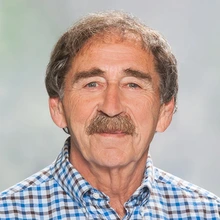
Thomas Volgy retired after a 53-year career at the University of Arizona. He began in what was the Department of Political Science and since 2009, has been a cornerstone of the School of Government and Public Policy.
A world-renowned scholar of international relations, Volgy has published more than 60 peer-reviewed articles and authored or co-authored 14 books, including Shocks and Political Change (2023), Turmoil and Order in Regional International Politics (2023), and The Forgotten Americans (1992). His research spans international politics, democratic processes, and public policy.
Volgy served for 20 years as executive director of the International Studies Association, significantly enhancing the University’s global reputation in international relations. He also served the Tucson community as a city council member and mayor from 1977 to 1991, providing testimony to multiple U.S. Congressional committees.
“Professor Volgy has clearly made exceptional contributions to our School, this campus, and our disciplines.”
—Alex Braithwaite, professor and director, School of Government and Public Policy
David Yetman
University Distinguished Outreach Faculty, Research Social Scientist Emeritus, Southwest Center in the School of Global Studies
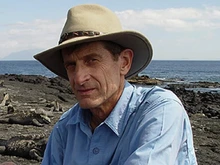
David Yetman is a globally recognized public scholar whose career exemplifies the land-grant mission of the University of Arizona. A former Pima County supervisor (1976–1988), he joined the Southwest Center in 1992 as a teacher and researcher and has since created award-winning television programs like In the Americas with David Yetman, bringing scholarly insight to broad public audiences.
Yetman’s extensive publications span the history, culture, and ethnobotany of the Southwest and Mexico. A skilled field researcher, his deep ethical commitment to the people and environments he studies has made his work both compelling and accessible. His early fieldwork in Sonora helped update Gentry's Rio Mayo Plants, which he co-edited, and contributed to the establishment of the 550-acre Coteco Biological Reserves in Masiaca, Mexico. A passionate advocate for social and environmental justice, Yetman also helped expand Tucson Mountain Park and preserve parts of Cienega Creek. He continues to support research and conservation efforts at the Coteco Biological Reserves in Sonora.
“David Yetman’s ability to translate academic research into public programming is unmatched. His work through The Desert Speaks and, In the Americas, has extended the University’s impact to millions, reflecting his lifelong dedication to outreach, education, and environmental justice. His life’s work has been extraordinary and diverse, and it has always been propelled by an abiding sense of service.”
—Jeffrey Banister, associate professor and former director, Southwest Center

